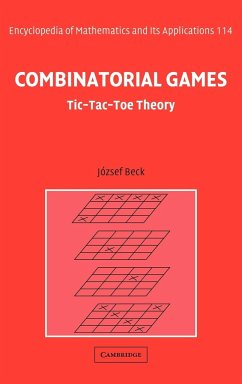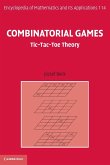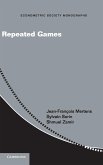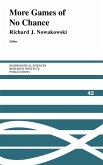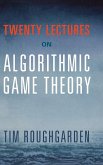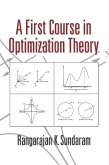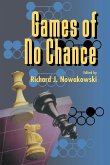Traditional game theory has been successful at developing strategy in games of incomplete information: when one player knows something that the other does not. But it has little to say about games of complete information, for example tic-tac-toe, solitaire and hex. This is the subject of combinatorial game theory. Most board games are a challenge for mathematics: to analyze a position one has to examine the available options, and then the further options available after selecting any option, and so on. This leads to combinatorial chaos, where brute force study is impractical. In this comprehensive volume, József Beck shows readers how to escape from the combinatorial chaos via the fake probabilistic method, a game-theoretic adaptation of the probabilistic method in combinatorics. Using this, the author is able to determine exact results about infinite classes of many games, leading to the discovery of some striking new duality principles.
Hinweis: Dieser Artikel kann nur an eine deutsche Lieferadresse ausgeliefert werden.
Hinweis: Dieser Artikel kann nur an eine deutsche Lieferadresse ausgeliefert werden.

